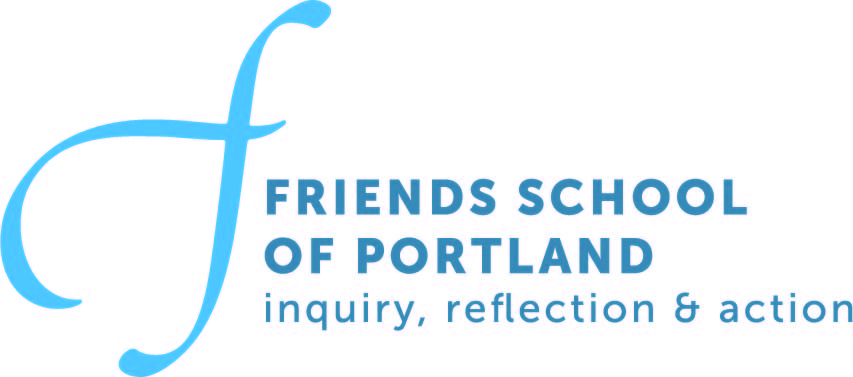Inward Work: Reflections from Director of Studies, Nell Sears
Quakers speak often of “preparing heart and mind”, referring to internal work necessary to be ready for meetings for worship or business. Parker Palmer, Quaker and educator, described this process of preparing in similar ways for a “Meeting for Learning:”
“...For conventional education, the learner prepares only with the mind. But in a meeting for learning, one’s total life must be brought along– not only intellect, but values, beliefs, relationships, actions, aspirations. Education, no less than worship, makes a claim on our total lives, and we must come to both meetings with that totality recollected and held up to the light.” (Meeting for Learning: Education in a Quaker Context, 8)
At Friends School of Portland, one of the pillars of our curriculum is, as our Curriculum Guide describes it, “reaching inward.” Teachers and students together engage in internal reflection and learning that prepares them to participate as members of their school community and beyond, to listen openly, and to seek truth as they navigate their educational journey together. Reaching Inward threads through our curriculum and instruction, and this aspect of our work together creates a learning culture where it is not only about what we can say and demonstrate, but also how we listen, reflect, and understand together. Below are three common categories of inner work at Friends School of Portland.
Identity
Teachers engage students in activities that help them to explore who they are and what they care about and to share themselves with their classroom community. Sometimes this looks like a self-portrait project or a ‘Where I’m from poem.” Other times it comes through classroom meetings and discussions where students are encouraged to engage with and communicate their connections, opinions, and passions. This month, Kindergarteners kicked off their yearlong study of letters by “collecting” words that are interesting to them and, through the language of dance and movement, noticing how different words make them feel differently.
Community
Extending identity work, teachers help students to reach inward to understand not only who they are, but who they are in the context of their community. They support students to build supportive communities to which they can bring their whole selves and in which they can take risks. When preschoolers learn to listen to friends’ messages, first and second graders share their hopes and dreams for their class, or fifth and sixth graders define and practice group norms, students begin to understand what it is to do the internal work necessary to take care of themselves and one another in community.
Resilience
Learning is rewarding and joyful, but it is also challenging. In order to learn, children (and all of us!) must be willing to take risks, to sit with confusion, to contend with complexity, and to work hard without external reward. Preparing inwardly for learning is important ongoing work. Teachers at Friends School center this work and make it explicit with children, helping children to understand what they are feeling, how to communicate those feelings, and how to access strategies to face into challenges and learn from them, both individually and collectively.
And of course, in our weekly Meeting for Worship, in the practices of silence that are threaded throughout the day, and in moments of group discernment, students engage in the collective practice of inner work and seeking truth in community.


